Why Donald Trump is racing so fast to remake America
The President has a short window to fulfil a long list of promises that include fixing illegal immigration, slashing government spending and ending the war in Ukraine.
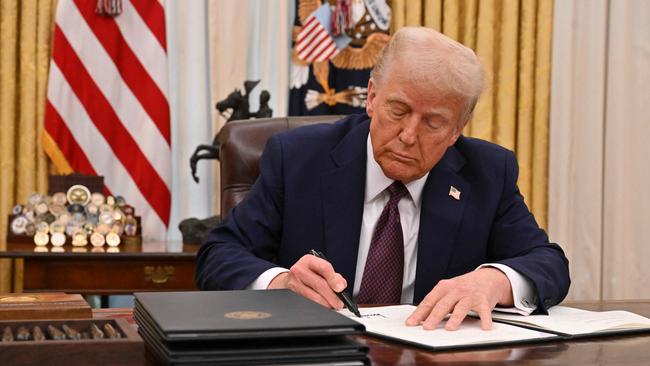
Four years after departing Washington, defeated and with the nation reeling from the attack on the Capitol, Donald Trump walked through the doors of the White House’s South Portico as the 47th president.
“It’s great to be back,” he told members of the household staff who applauded his return on Inauguration Day.
Trump then proceeded to kick off a first week in office unlike any other, dominating attention in the US and abroad as he raced to fulfil campaign promises, make deals and settle scores.
Facing high expectations and a limited political window, the president headed to the Oval Office hours after he was sworn in Monday. A stack of executive orders waited on the Resolute Desk for his signature, and an aide asked if Trump wanted to assemble the press corps.
“Let’s do it,” the president said. For the next 47 minutes, Trump held court, taking questions from reporters in the same venerated office that Joe Biden had occupied hours earlier. Trump called stage directions to a photographer: “Not on the side angle. Do you mind?”
The president scribbled his signature on one directive after the next. His first order of business: pardons for the Jan. 6 rioters. The president later signed an order to withdraw the US from the World Health Organisation. “That’s a big one,” he said. Another designated drug cartels as foreign terrorist organisations.
There was one major campaign promise Trump couldn’t deliver. He had boasted he could immediately end Russia’s war with Ukraine. This week, he threatened Russia with sanctions and tariffs and expressed disappointment that Chinese leader Xi Jinping hasn’t done more to help.
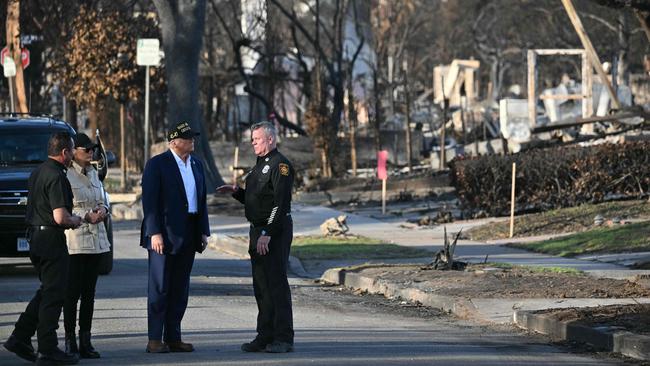
As the week continued, Trump threatened tariffs and demanded allies spend more on defence in a virtual address to the World Economic Forum in Davos, Switzerland. On Friday, he embarked on his first domestic trip, which included a tour of hurricane recovery areas in North Carolina and damage left by the Los Angeles-area wildfires. Trump said he planned to eliminate or overhaul the Federal Emergency Management Agency, saying states should handle their own disasters.
The torrent of activity was acknowledgment that Trump must move quickly to enact his far-reaching agenda. He enters office with unified Republican control of Washington and his highest approval ratings in years, a commanding position that history shows is likely to soften.
Public opinion typically plummets after an inauguration honeymoon. Cracks in Trump’s popularity would threaten the GOP’s narrow majority in Congress during the midterm elections.
While Trump and his aides claim a voter mandate — the president won all seven swing states — the US remains divided. Trump risks reading too much into his electoral victory, GOP pollster Whit Ayres said, and the president should keep in mind the fate of his predecessor.
“Joe Biden terribly overplayed his hand when he was persuaded by some historians that he could be a historically consequential president when he was, in fact, elected to return the country to normalcy and fairly moderate governance,” Ayres said.
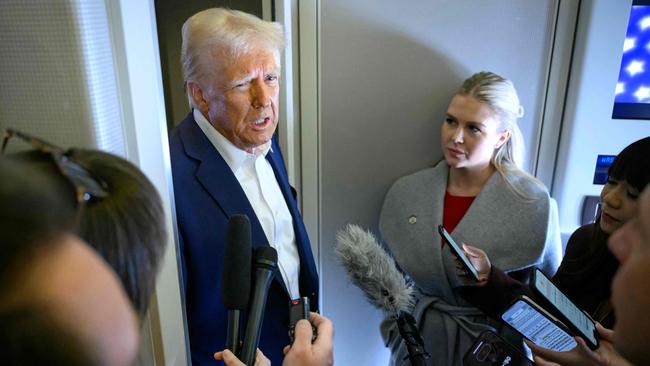
A recent Wall Street Journal poll showed the public would prefer a more restrained Trump. Most voters say, for instance, that only undocumented immigrants with criminal records should be deported, and longtime residents who entered the US illegally should be protected. Most voters in the poll expressed scepticism of Trump’s plans to replace career civil-service workers, and 57 per cent opposed pardoning those convicted in the Jan. 6 riot at the Capitol.
Voters shouldn’t be surprised by the speed and reach of Trump’s early policy moves, advisers said. Trump repeatedly laid out his plans during campaign rallies, interviews and Truth Social posts, from nationwide immigration raids to hefty tariffs on imports.
“I think he feels a sense of pent up energy, because he had to spend four years in the wilderness thinking about it,” said former House Speaker Newt Gingrich, a Trump ally.
High gear
Trump struggled in his first term with a set of aides who arrived at the White House with little idea how to run the government. From the outside, the president’s team appears more unified, disciplined and loyal. Many have spent years preparing for a second term.
Minutes after Trump was sworn in, a redesigned White House website went live, featuring a video montage of a soaring bald eagle, military jets and a saluting Trump. “America Is Back,” a banner on the site said.
During a meeting at the White House on Thursday night, Trump told staff he had made a lot of promises during the campaign and now it was time to deliver, according to a senior administration official. Aides are working on legislation to change the tax code and immigration policy, relying on strong ties to Republican lawmakers.
Trump is upbeat and more comfortable in the role of commander in chief, aides and friends said. Following the signing of executive orders Monday evening in the Oval Office, Trump attended three late-night balls, cutting a cake with a sword and dancing on stage with family members as the Village People performed the campaign-rally staple “Y.M.C.A.” Trump has taken a personal interest in presidential trappings, from designing a commemorative challenge coin — with the family crest emblazoned on the back — to noting with approval the rug in the Oval Office.
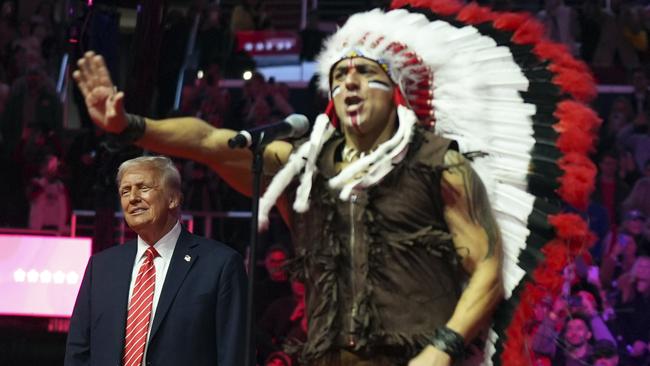
“He’s in high gear and he feels triumphant,” said Roger Stone, a longtime Trump ally. The president’s sense of vindication and confidence has swept through a West Wing staff that stuck with him through the lows and highs of the past few years, including Trump’s various prosecutions. Some are second-timers.
Harrison Fields, the principal deputy press secretary, opened the drawer of his former desk at the White House and saw the signature he left at the end of Trump’s first term. Presidential press secretary Karoline Leavitt returned to a building where she had started as an intern.
Susie Wiles, the first woman to hold the role of White House chief of staff, last worked at the White House while serving as President Ronald Reagan’s scheduler. She is credited with imposing order on the Trump campaign and is expected to do the same in her new job.
Wiles will have her hands full. Billionaire Elon Musk, now ensconced in Trump’s orbit and charged with the quixotic task of slashing government spending and regulations, has been a source of drama. Seemingly on a whim, he pops off to millions of followers on X, annoying other presidential advisers.
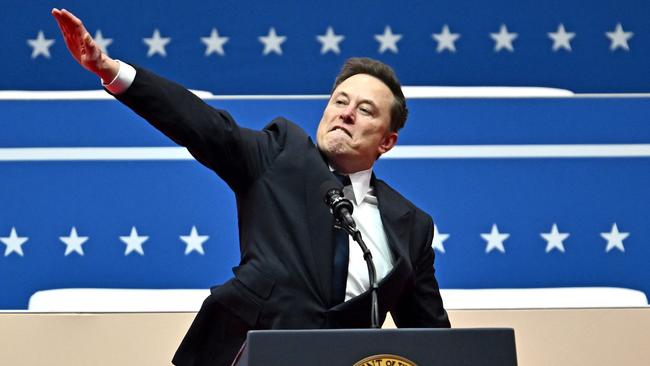
Musk trashed a $US500bn AI joint venture that the president announced this week with the leaders of OpenAI, Oracle and SoftBank. The president gave an eye-roll when Musk provoked a social-media fight with OpenAI CEO Sam Altman, according to a Trump administration official.
While some of Trump’s allies, including his former chief strategist Steve Bannon, have called for Musk’s ouster, Trump, who himself fires off provocative social-media missives, didn’t budge. “He hates one of the people in the deal,” Trump told reporters, referencing Musk’s well-documented dislike for Altman. “But I have certain hatreds of people, too.” Musk is a constant presence, according to aides. One staffer ran into the Tesla chief executive making a 6.30am coffee run this week at the White House cafeteria.
No, he called me
Trump appeared determined this week to reward those who aided his victory, regardless of political cost. In particular, the blanket Jan. 6 pardons — including people who attacked police — made many Republicans on Capitol Hill squeamish. In an echo of Trump’s first term, reporters cornered GOP senators to ask if they approved of the president’s actions.
Trump has pledged during his campaign to punish drug dealers with the death penalty. He threatened China, Mexico and Canada with tariffs, in part because he alleges they haven’t done enough to stop the flow of fentanyl into the US. Yet Trump took action this week that seemed to undercut such concerns. The president, carrying out a campaign promise to libertarian supporters, also pardoned Ross Ulbricht, founder of darknet marketplace Silk Road.
Federal prosecutors said that Silk Road sold more than $200 million worth of illegal drugs and other illicit goods.
Trump had previously called for Chinese-owned TikTok to be shut down in the US because of national-security concerns. This week, the president signed an executive order that keeps the app operating in the US for at least 75 days. The order raised legal questions — Biden signed a law that required the app’s Chinese parent to sell it or close it — and was criticised by such China hawks as Trump-ally Sen. Tom Cotton (R., Ark.). Trump brushed aside objections, noting his popularity on the platform.
Other decisions this week, including on illegal immigration, drew broad GOP approval. Trump declared an invasion at the US-Mexico border and ordered work to restart on the border wall. He granted federal authorities permission to make immigration arrests near churches and schools, and he ended programs to admit asylum seekers and refugees.

The flurry of executive orders laid the groundwork to pursue Trump’s “America First” trade agenda — directing assessments of the US-Mexico-Canada Agreement and the 2020 trade deal with China — and to expand fossil-fuel production in the US.
Trump stripped security protection from first-term officials who angered or annoyed him, according to people familiar with the matter. Those officials included former national security adviser John Bolton, former Secretary of State Mike Pompeo and Dr. Anthony Fauci, the former top US infectious disease official. Bolton and Pompeo have faced threats from Iran. Fauci testified to Congress about threats to him and his family. Trump said former government officials shouldn’t have protection for the rest of their lives.
The president also ran into roadblocks this week. A judge on Thursday temporarily halted his plan to end birthright citizenship, and legal challenges to other policy moves are piling up. Public-interest groups this week filed lawsuits against the Department of Government Efficiency, which is being led by Musk.
Trump wanted to make clear that world leaders are reaching out to him, not the other way around. When World Economic Forum CEO Børge Brende mentioned during a virtual panel discussion Thursday that Trump had called Xi just days before the inauguration, Trump immediately corrected him: “He called me.” Democrats so far have mounted a muted counteroffensive, compared with the broad appeals for political resistance during Trump’s first term.
“It’s hard to respond to so much chaos, which is Trump’s MO. Flood the zone,” said Rep. Veronica Escobar (D., Texas). “We’ve got to prioritise those things that are important to us and to the American people, because there will be far too much for us to battle.” Trump’s critics have done little but watch from the sidelines — with one high-profile exception. The president sat in the front row Tuesday at a prayer service where an Episcopal bishop implored him to show mercy to immigrants and LGBTQ children. Her remarks generated more than 30 million online views in 48 hours.
The president, in a social-media post hours later, called the bishop a “radical left hard line Trump hater.”
Katy Stech Ferek contributed to this article.
The Wall Street Journal



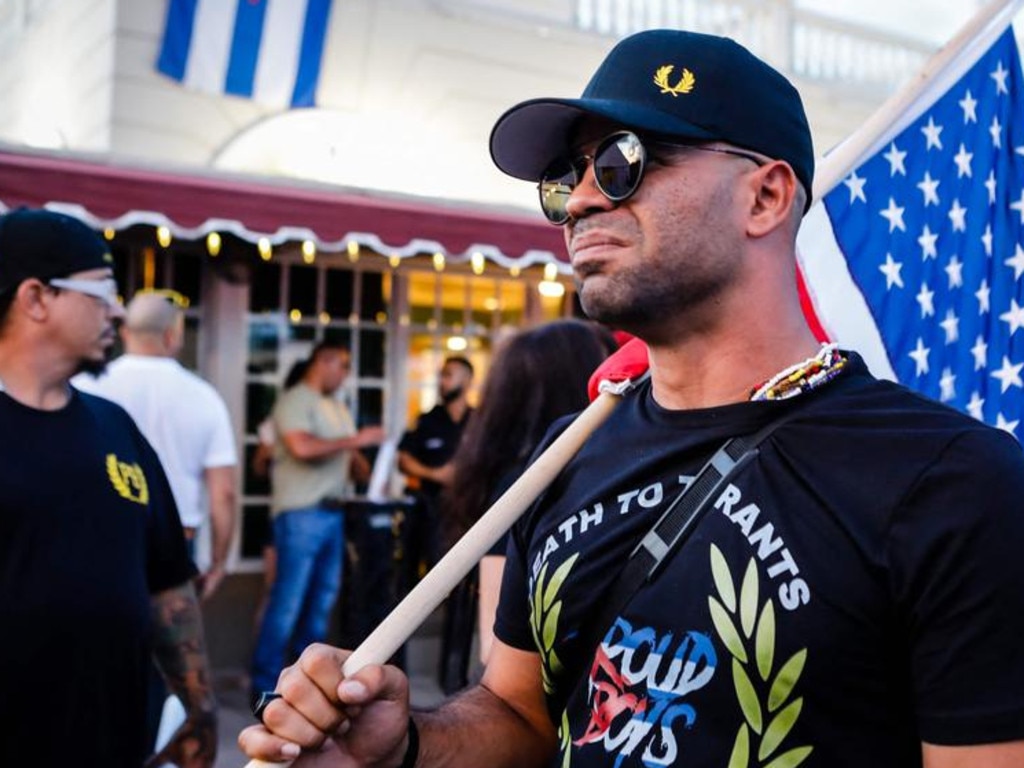


To join the conversation, please log in. Don't have an account? Register
Join the conversation, you are commenting as Logout